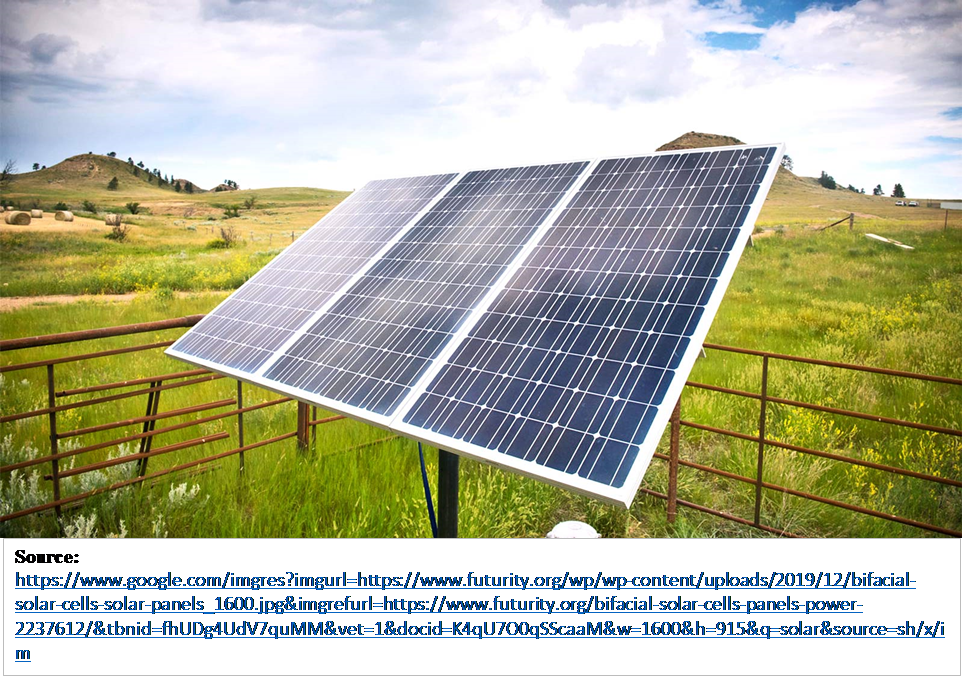Towards sustainable energy system options for improving energy access in Southern Africa
DOI:
https://doi.org/10.17159/2413-3051/2020/v31i1a6504Keywords:
sustainable, distributed generation, remote locations, energy accessAbstract
Access to modern energy services is one of the pre-requisites to improved livelihood, yet the poor, particularly in developing countries, remain tied to unhealthy and inefficient traditional fuels. Renewable energy technologies are increasingly popular energy supply alternatives to fossil-based fuels in many countries. This study presents sustainable energy system implementation options for increasing energy access in developing countries, with special emphasis on Sub-Saharan Africa. A feasibility case study and various implementation options are presented for possible deployment of these systems. Hybrid optimization of multiple energy resources software was used to simulate and validate the proposed hybrid system design and performance. The simulation results indicate that hybrid systems would be feasible options for distributed generation of electric power for remote locations and areas not connected to the electricity grid. Such a hybrid energy system, through providing modern energy services, gives promise to free-up rural communities to engage in productive activities. The opportunity to power or facilitate productive activities such as agro-processing, fabrication and services can potentially reduce poverty.
Downloads
References
Ashok, S., 2007. Optimised model for community-based hybrid energy system. Renewable energy, 32(7), pp.1155-1164.
Adefarati, T., Papy, N.B., Thopil, M. and Tazvinga, H., 2017. Non-renewable distributed generation technologies: A review. In Handbook of Distributed Generation (pp. 69-105). Springer, Cham.
Data Resources | USAID. Available at: https://www.usaid.gov/results-and-data/data-resources (Accessed: 5 October 2018).
Zimbabwe Energy Situation-energypedia.info. Available at: https://energypedia.info/wiki/Zimbabwe_Energy_Situation (Accessed: 10 October 2018).
Fulzele, J.B. and Daigavane, M.B., 2015, November. Optimization of PV-wind hybrid renewable energy system for rural electrification. In 2015 7th International Conference on Emerging Trends in Engineering & Technology (ICETET) (pp. 101-105). IEEE.
Tazvinga, H. and Hove, T., 2010. Photovoltaic/Diesel/Battery Hybrid Power Supply System. VDM Publishers.
Garcia Tapia, V., 2018. Hybrid Renewable Energy System for Controlled Environment Agriculture.
Roland, S. and Glania, G., 2011. Hybrid mini-grids for rural electrification: Lessons learnt. Alliance for Rural Electrification (ARE)/USAID. Brussels, Belgium.
Khatib, H., 2012. IEA world energy outlook 2011—A comment. Energy policy, 48, pp.737-743.
IEA (2014) Energy in Africa Today, Africa Energy Outlook, pp.13–25. https://www.iea.org/publications/freepublications/publication/africa-energy-outlook.html.
IEA (2014), Africa Energy Outlook: World Energy Outlook Special Report, OECD/IEA, Paris.
IEA (2017) WEO-2017 Special Report: Energy Access Outlook, OECD/IEA, Paris.
IEA PVPS Task 9 (2003) ‘16 Case Studies on the Deployment of Photovoltaic Technologies in Developing Countries’, Power. Available at: http://www.iea-pvps.org.
Leckner, M. and Zmeureanu, R., 2011. Life cycle cost and energy analysis of a Net Zero Energy House with solar combisystem. Applied Energy, 88(1), pp.232-241.
Middlemiss, L. and Gillard, R., 2015. Fuel poverty from the bottom-up: Characterising household energy vulnerability through the lived experience of the fuel poor. Energy Research & Social Science, 6, pp.146-154.
Suzuki, A.B.P., Fernandes, D.M., Faria, R.A.P. and Vidal, T.C.M., 2011. Use of biogas in internal combustion engines. Applied Research & Agrotechnology, 4(1), pp.221-237.
Ogunjuyigbe, A.S.O., Ayodele, T.R. and Akinola, O.A., 2016. Optimal allocation and sizing of PV/Wind/Split-diesel/Battery hybrid energy system for minimizing life cycle cost, carbon emission and dump energy of remote residential building. Applied Energy, 171, pp.153-171.
Petrillo, A., De Felice, F., Jannelli, E., Autorino, C., Minutillo, M. and Lavadera, A.L., 2016. Life cycle assessment (LCA) and life cycle cost (LCC) analysis model for a stand-alone hybrid renewable energy system. Renewable energy, 95, pp.337-355.
Promethium Carbon (2016) Report Electricity Market Reform in Southern Africa.
Rahman, H.A., Majid, M.S., Jordehi, A.R., Kim, G.C., Hassan, M.Y. and Fadhl, S.O., 2015. Operation and control strategies of integrated distributed energy resources: A review. Renewable and Sustainable Energy Reviews, 51, pp.1412-1420.
SADC, SARDC, 2016. SADC Energy Monitor 2016: Baseline Study of the SADC Energy Sector. Southern African Development Community and Southern African Research and Documentation Centre, Gaborone and Harare.
SADC, 2016. Renewable Energy and Energy Efficiency Strategy & Action Plan: REEESAP 2016-2030. Southern African Development Community, Gaborone.
Sichilalu, S., Tazvinga, H. and Xia, X., 2016. Optimal control of a fuel cell/wind/PV/grid hybrid system with thermal heat pump load. Solar Energy, 135, pp.59-69.
Wellinger, A., Murphy, J.D. and Baxter, D. eds., 2013. The biogas handbook: science, production and applications. Elsevier.
Surface Meteorology and Solar Energy | NASA Open Data Portal (no date). Available at: https://data.nasa.gov/Earth-Science/Surface-Meteorology-and-Solar-Energy/wn3p-qsan (Accessed: 31 January 2019).
Tazvinga, H. et al. (2011) ‘Can solar -biogas hybrid systems be the solution to sustainable energy supply in rural areas?’, in Domestic use of energy. Cape Town: Cape Peninsula University, pp. 203–208. Available at: http://researchspace.csir.co.za/dspace/handle/10204/5118 (Accessed: 10 October 2018).
Tazvinga, H., 2015. Energy optimisation and management of off-grid hybrid power supply systems (Doctoral dissertation, University of Pretoria).
Tazvinga, H., Thopil, M., Numbi, P.B. and Adefarati, T., 2017. Distributed renewable energy technologies. In Handbook of Distributed Generation (pp. 3-67). Springer, Cham.
Tazvinga, H. and Hove, T., 2010. Technical model for optimising PV/diesel/battery hybrid power systems, CSIR. Available at: http://researchspace.csir.co.za/dspace/handle/10204/4229 (Accessed: 8 October 2018).
Wang, C. and Nehrir, M.H., 2008. Power management of a stand-alone wind/photovoltaic/fuel cell energy system. IEEE transactions on energy conversion, 23(3), pp.957-967.
Zakeri, B. and Syri, S., 2015. Electrical energy storage systems: A comparative life cycle cost analysis. Renewable and sustainable energy reviews, 42, pp.569-596.

Downloads
Published
Issue
Section
License
Copyright (c) 2020 Henerica Tazvinga, Oliver Dzobo, Maxwell Mapako

This work is licensed under a Creative Commons Attribution-ShareAlike 4.0 International License.



.png)